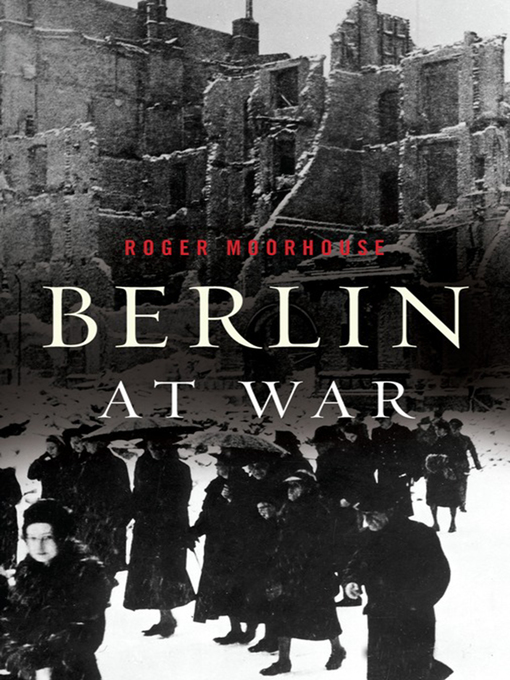Berlin was the city at the very center of World War Two. It was the launching pad for Hitler's empire, the embodiment of his vision of a world metropolis.” Berlin was also the place where Hitler's Reich would ultimately fall. Berlin suffered more air raids than any other German city and endured the full force of a Soviet siege.
In Berlin at War, historian Roger Moorhouse uses diaries, memoirs, and interviews to provide a searing first-hand account of life and death in the Nazi capital: the privations, the hopes and fears, and the nonconformist tradition that saw some Berliners provide underground succour to the city's remaining Jews. Combining comprehensive research with gripping narrative, Berlin at War is the incredible story of the city--and people--that saw the whole of World War Two.


